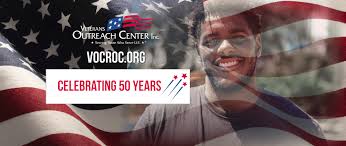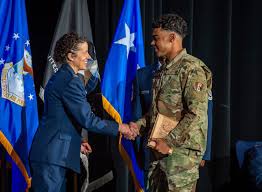Veterans are individuals who have served in the United States Armed Forces. They have made a significant contribution to our country by protecting and defending our freedom, liberty, and way of life.
Veterans have served in many different capacities ranging from combat to support roles. They have fought in wars, defended our borders, and provided humanitarian aid around the world. They have also served in peacetime operations such as disaster relief, peacekeeping missions, and other operations that help maintain stability and security throughout the world.
The sacrifices that veterans make should not be taken lightly. Many veterans come home with physical and mental wounds that can last a lifetime. They may suffer from post-traumatic stress disorder (PTSD), traumatic brain injuries (TBIs), depression, anxiety, and other psychological challenges due to their experiences in combat or other dangerous situations. These challenges can make it difficult for veterans to readjust to civilian life after their service has ended.
Fortunately, there are organizations dedicated to helping veterans transition back into civilian life. The Department of Veterans Affairs provides a wide range of services for veterans including healthcare benefits, education assistance programs, job training programs, disability compensation, housing assistance, and more. Additionally, there are many private organizations that provide services such as financial assistance and counseling specifically designed for veterans.
We owe a great debt of gratitude to our veterans for their service and sacrifice. We should take every opportunity we can to thank them for their dedication to protecting our nation’s freedom and way of life. We should also make sure that they receive the care they need when they return home so they can live happy and healthy lives after serving our country so bravely.
Seven tips for veterans
- Reach out for help if you need it. There are many organizations and resources available to assist veterans with their transition back into civilian life.
- Take advantage of educational opportunities and job training programs offered by the VA or other organizations.
- Stay connected to your military peers by joining veteran groups and attending events that honor service members past and present.
- Make use of the GI Bill benefits you have earned through your service; these can be used for college tuition, housing, books, etc.
- Seek counseling if needed; there are many mental health services available for veterans struggling with PTSD or other issues related to their service experience(s).
- Participate in recreational activities such as sports, outdoor activities, volunteer work, etc., as a way to stay physically active and mentally engaged in life after the military .
- Network with local employers who may be looking for experienced employees with a veteran background
Reach out for help if you need it. There are many organizations and resources available to assist veterans with their transition back into civilian life.
For many veterans, the transition from military life to civilian life can be a difficult one. It can be hard to adjust to a new way of living, and many veterans struggle with feelings of isolation and loneliness. Fortunately, there are many organizations and resources available to help veterans make this transition easier.
One of the best ways for veterans to get the support they need is to reach out for help. There are numerous organizations dedicated to providing assistance and support to veterans, including those that offer mental health services, job training, financial assistance, and more. Many of these organizations provide free or low-cost services and can provide invaluable support during the transition period.
Veterans should also consider seeking out local resources in their community that may be able to provide assistance. This could include local veteran service organizations or even churches or other community groups that may be willing to help out. Additionally, there are numerous online resources available that offer advice and support for transitioning veterans.
Making the transition from military life back into civilian life can be a challenging process for many veterans. However, by reaching out for help when needed, veterans can find the support they need during this time of transition. With the right resources in place, transitioning back into civilian life can become much easier and less stressful for all involved.
Take advantage of educational opportunities and job training programs offered by the VA or other organizations.
As a veteran, you have access to a number of educational opportunities and job training programs offered by the VA and other organizations. These programs can help you gain the skills needed to pursue a new career or advance in your current one.
The VA offers a variety of educational benefits, including the Post-9/11 GI Bill, which provides financial assistance for tuition, fees, housing, and books. The Vocational Rehabilitation and Employment program provides veterans with counseling, training, education and job placement services. The VA also has an Education Assistance Program that provides tuition assistance for veterans attending college or technical school.
In addition to the VA’s programs, there are many other organizations that offer job training programs specifically for veterans. These include the U.S. Department of Labor’s Veterans’ Employment and Training Service (VETS) program, which provides employment services such as job search assistance and career counseling; the Wounded Warrior Project’s Transition Training Academy, which offers courses on resume writing and interviewing skills; and VetSuccess on Campus, which helps veterans transition from military service to higher education.
Taking advantage of these educational opportunities and job training programs can open up new career paths for veterans and help them succeed in their professional lives.
Stay connected to your military peers by joining veteran groups and attending events that honor service members past and present.
Veterans have served their country with pride, and now that they are back home, it is important to stay connected to their military peers. Joining veteran groups and attending events that honor service members past and present is one way to do this.
Veteran groups provide a great way for veterans to stay connected with each other and share experiences. These groups can help veterans find support, camaraderie, and understanding from those who have gone through similar experiences. By joining veteran groups, veterans can build relationships with others who understand the unique challenges of readjusting to civilian life after military service.
Attending events that honor service members past and present is another great way for veterans to stay connected with their peers. These events can be a great source of inspiration as well as a reminder of the sacrifices made by those who have served our country. They also provide an opportunity for veterans to come together and show respect for those who have gone before them.
Staying connected with your military peers is an important part of readjusting to civilian life after military service. Joining veteran groups and attending events that honor service members past and present are two great ways to do this.
Make use of the GI Bill benefits you have earned through your service; these can be used for college tuition, housing, books, etc.
As a veteran, you have earned the right to use certain benefits to help you in your post-service life. One of these is the GI Bill, which can be used for a variety of purposes, including college tuition, housing, and books.
The GI Bill is an invaluable resource for veterans who are looking to further their education and gain new skills. By taking advantage of this benefit, you can make sure that you have the financial support necessary to pursue the goals that you have set for yourself.
It is important to note that the GI Bill does not cover all expenses related to college tuition or housing. It is important to do research on other assistance programs that may be available in order to make sure that you are getting the most out of your GI Bill benefits.
Overall, making use of the GI Bill benefits that you have earned through your service is a great way to ensure that you have the resources necessary to pursue your educational and career goals. With proper planning and research, you can make sure that your post-service life is as successful as possible.
Seek counseling if needed; there are many mental health services available for veterans struggling with PTSD or other issues related to their service experience(s).
Veterans who have served in the military often face unique challenges that can be difficult to overcome. Post-traumatic stress disorder (PTSD) is one such issue that can be especially debilitating, causing veterans to struggle with anxiety, depression, and other negative emotions. Fortunately, there are many mental health services available for veterans who need help dealing with PTSD or any other issues related to their service experience(s).
It is important for veterans to understand that seeking counseling or other forms of help is not a sign of weakness. In fact, it takes great strength and courage to reach out for assistance when needed. Mental health professionals can provide invaluable support and guidance, helping veterans process their experiences in a healthy way and build the necessary coping skills for the future.
Veterans who are struggling should know that they are not alone; there are many organizations dedicated to providing resources and support for those in need. The Veterans Administration (VA) offers a wide range of mental health services specifically designed for veterans, including individual counseling, group therapy, and family therapy. Additionally, there are numerous non-profit organizations that offer free or low-cost mental health services as well as peer support groups where veterans can connect with others who have had similar experiences.
Reaching out for help can be difficult but it is an important step towards recovery. Veterans should never hesitate to seek counseling if needed; there are many mental health services available that can help them overcome their struggles and live a healthier life.
Participate in recreational activities such as sports, outdoor activities, volunteer work, etc., as a way to stay physically active and mentally engaged in life after the military .
For veterans, transitioning from military life to civilian life can be a difficult challenge. One of the best ways to stay physically active and mentally engaged in life after the military is to participate in recreational activities such as sports, outdoor activities, volunteer work, and more.
These activities offer veterans the opportunity to stay active and connected with their community in a way that is both enjoyable and beneficial. Sports can help veterans build confidence, develop teamwork skills, and stay physically fit. Outdoor activities such as hiking, camping, or fishing provide a great way for veterans to relax and explore nature while staying connected with friends or family. Volunteering is also an excellent way for veterans to give back to their community while developing relationships with new people.
Participating in recreational activities can also help reduce stress levels and improve mental health by providing a distraction from everyday worries. It can also help veterans create meaningful connections with other people who have similar interests or experiences.
Overall, recreational activities are an excellent way for veterans to stay physically active and mentally engaged in life after the military. By participating in these activities, they can build confidence, reduce stress levels, explore nature, give back to their community, and create meaningful connections with others.
Network with local employers who may be looking for experienced employees with a veteran background
As a veteran, it is important to network with local employers who may be looking for experienced employees with a veteran background. Many employers recognize the value that veterans bring to the workplace and are actively looking for individuals with military experience.
Veterans have unique skills that can be an asset to any business. They are often highly disciplined, organized and have strong leadership skills. Veterans also have a deep understanding of technology and the ability to quickly adapt to new situations.
Networking with local employers can help veterans find employment opportunities that match their skills and experience. It is important to make sure that potential employers know that you are a veteran and the skills you bring to the table. Additionally, veterans should make sure they are familiar with any relevant laws or regulations that may apply to them as an employee of a certain company or industry.
By networking with local employers, veterans can find employment opportunities that match their skills and experience. This will help them transition into civilian life more easily and ensure they are in the best position possible for success in their new role.



